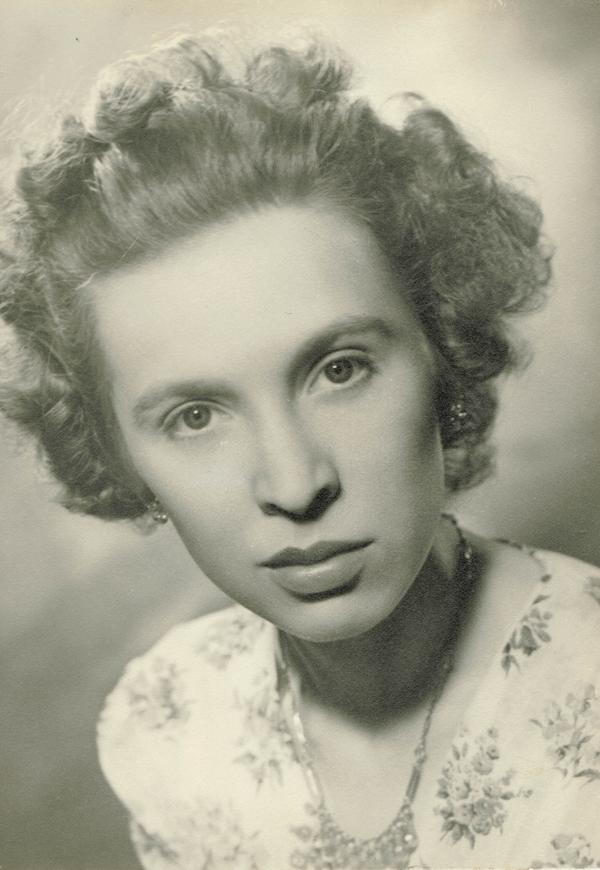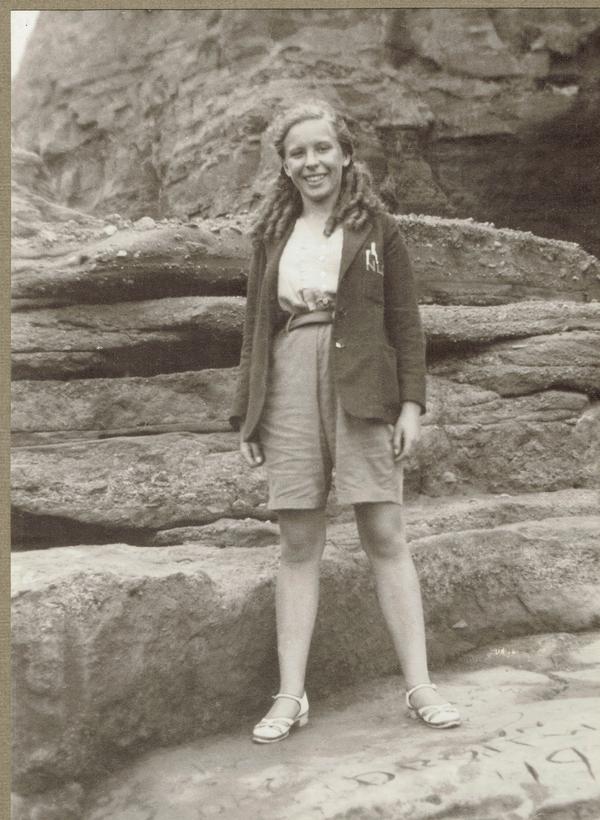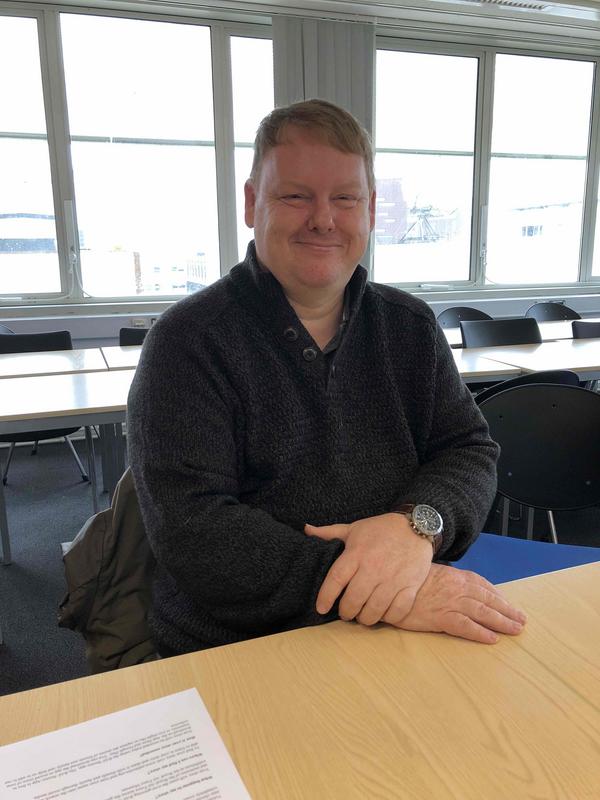(plane engine roaring)
and I always remember when I was younger,
knowing that my grandmother, Hazel,
had done some maths on the Spitfires.
That's kind of how I remembered it.
I never really understood what it meant.
It was only kind of recently,
when I stopped working at BBC,
it's in the back of my mind,
that we should start
looking into what that story was.
It was mainly down to my dad and his three brothers,
who, after Hazel passed away,
started looking into what her contribution
and Fred's contribution had been.
The theory was, in the mid 1930s,
Captain Fred Hill,
who's my great-grandfather,
worked in the Air Ministry.
They'd come up with this new specification
for the new generation of fighter planes;
the Spitfires and the Hurricanes,
which were originally
designed to carry just four guns.
But Fred, he'd looked a lot of analysis
and he realized that four guns
probably wouldn't be enough.
He was struggling to make his case
because a lot of his superiors
at the Air Ministry
just didn't think that would work.
So, he had to prove his case in his own time.
He took home some of the latest firing analysis,
and asked his daughter, Hazel, my grandmother,
who was 13 years old at the time,
to help him with the mathematical calculations
which proved that the new fighter planes
could carry eight guns,
and in fact, would need to carry
at least eight guns,
firing 1000 rounds a minute,
in order to bring down the German planes.
From the calculation which Hazel did,
he turned it into two graphs,
which he presented at a meeting
at the air ministry,
on the 19th of July 1934,
a kind of a famous meeting.
They were won over by his argument, finally.
It was at that meeting that
the decision was made,
the new planes with eight guns.
to the National Archives in Kew,
and found the graphs that had been drawn
for that meeting in July, 1934.
There they were, hand drawn
in my grandfather's handwriting.
These graphs have been classified for many years.
They have top secret written on them and things.
I didn't realize quite how vital they were.
If you read accounts of that meeting
and people are in that meeting saying
that the graphs were really the evidence that may
make people face up to the reality
they need to have more machine guns in it.
Then you look at the battle of Britain,
the start-up session about Britain,
you realize how important the eight guns were,
and how marginal the victory was.
for us to have the edge over Germany.
It was only just enough for us to win.
If we'd gone with last, if we'd gone
with the four guns or even six,
if you're compromised but made it six,
we would have likely
lost the battle to Britain and
potentially the war, because the battle
was seen as a big turning point
in the second world war,
and our win was so important.
I think she would have secretly
been very proud and probably happy
that it had been recognized,
but I think that would be the important bit,
wouldn't it? she'd want to
knowing that her work had inspired
other young girls,
which I really think it has,
some kind of the messages I've had
probably would have meant an awful lot to her.
And she never lets the fact she was a woman get in her way.
She just kept on going
and powered through things
and didn't accept any resistance.
But I know, which speaking to her privately,
she often did see a lot
of resistance to her role as a woman.
I think the fact that
the girls taking inspiration
from her story, would be really, good for her.
I mean, she'd have loved that.



